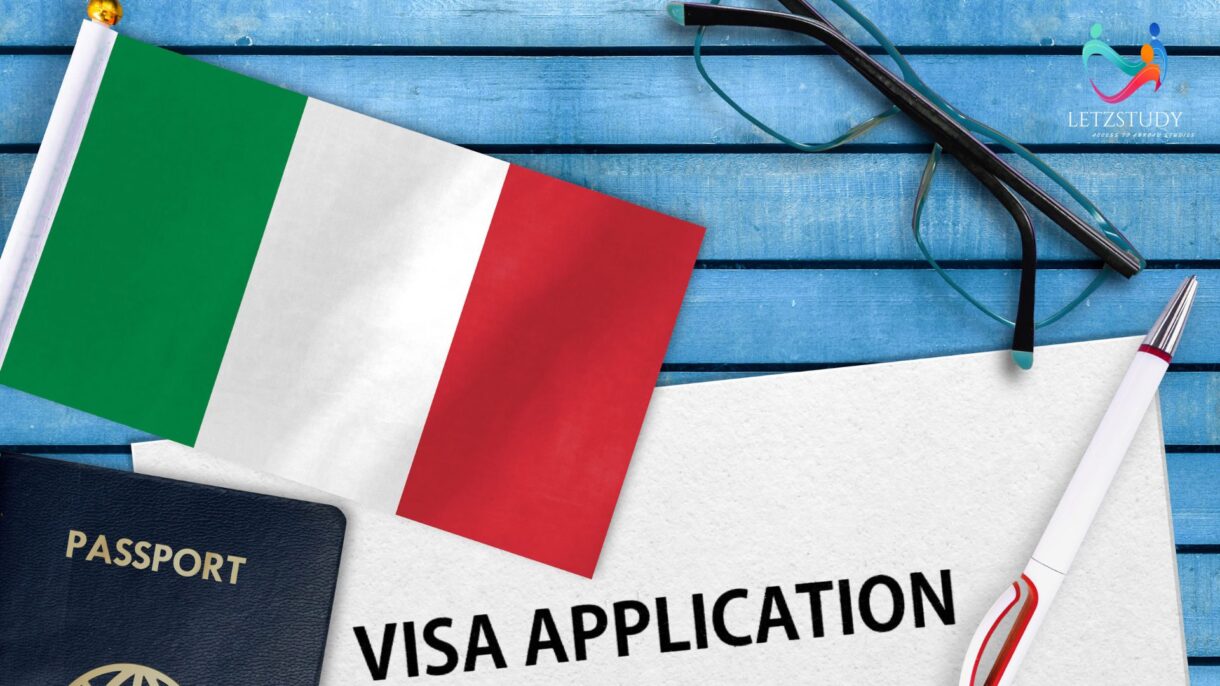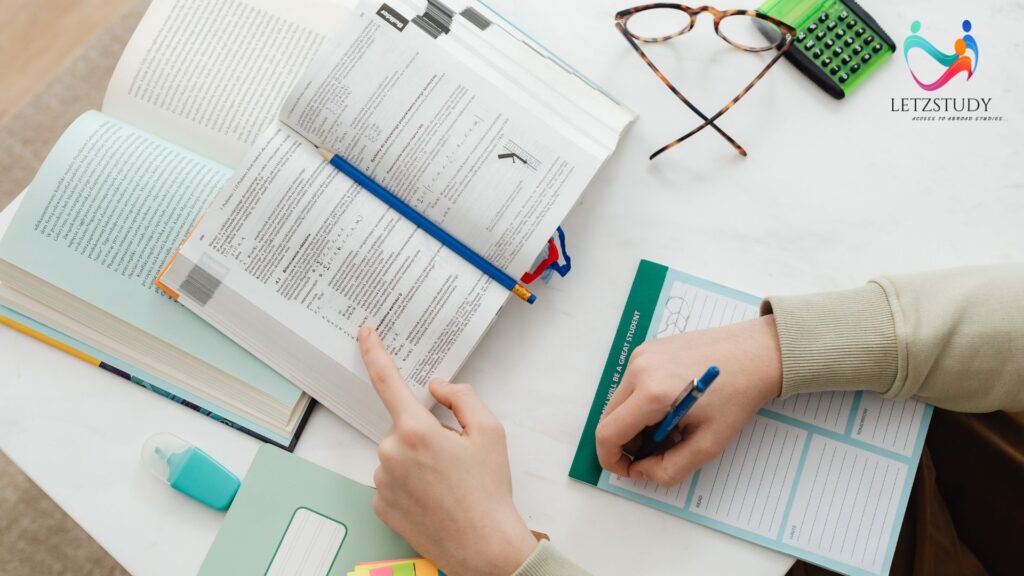
Going to school in Italy isn’t just about getting a great education; it’s also about living in a country filled with history, art, and innovation. From the cobbled streets of Florence to the modern campuses of Milan, Italy has a lot to offer international students in both academics and culture. But before you pack your bags, you need to get your Italy Study Visa.
This guide will walk you through everything you need to know—types of visas, eligibility, application process, required documents, costs, and useful tips to make your journey smoother.
What is a Visa to Study in Italy?
An Italy Study Visa allows students from outside the EU to study at recognized Italian universities or institutions. It gives you the right to stay in Italy for more than 90 days for education.
Types of Italy Study Visas
- Type C Visa: For courses shorter than 90 days.
- Type D Visa: For long-term courses such as bachelor’s, master’s, or PhD programs.
If you plan to stay longer than 90 days, you’ll also need a residence permit (Permesso di Soggiorno) once you arrive.
Requirements for Getting an Italy Study Visa
To be eligible, you must:
- Have an official acceptance letter from an Italian university or institution.
- Show proof of sufficient funds to cover your stay.
- Provide accommodation details in Italy.
- Hold valid health insurance for your entire duration.
- Demonstrate genuine study intentions—not for work.
Documents Needed for the Italy Study Visa
Important Papers
- Valid passport (minimum six months validity)
- Completed visa application form
- Passport-size photos (white background)
- Letter of acceptance from an Italian institution
- Proof of tuition payment
- Financial documents (bank statements or sponsor letter)
- Accommodation proof in Italy
- Health insurance (minimum €30,000 coverage)
- Flight bookings and travel plans
- Visa fee receipt
Supporting Documents (Optional)
- Academic transcripts and certificates
- Proof of language proficiency (IELTS, TOEFL, etc.)
- Statement of Purpose (SOP)
How to Get a Study Visa for Italy
Step 1: Get Accepted
Apply to your chosen Italian university online. Once accepted, request your official Letter of Admission—you’ll need it for your visa.
Step 2: Prepare Your Documents
Gather all required documents in both original and copy form.
Step 3: Schedule an Appointment
Book your appointment on the Italian Consulate or VFS Global website for biometric submission and document review.
Step 4: Submit Your Application
Bring your documents, pay the visa fee, and attend the short interview on your scheduled date.
Step 5: Wait for Processing
The process takes around 2–4 weeks depending on location. Track your status online.
Step 6: Collect Your Visa
Once approved, collect your visa and verify all details before traveling.

How Much Does an Italy Study Visa Cost?
Here’s the breakdown:
- Visa Fee: €50–€60
- Residence Permit: €70–€100
- Health Insurance: €150–€200 per year
These amounts can vary slightly depending on your city or consulate.
Residence Permit After You Arrive
Once in Italy, apply for your Permesso di Soggiorno within 8 working days at a post office or immigration office.
You’ll need:
- Copy of your visa and passport
- University enrollment certificate
- Health insurance
- Proof of funds
- Completed form (available at post office)
Processing takes a few weeks. It’s valid for one year and renewable annually.
Reasons Why Visas Are Often Denied
Even when documents seem fine, rejections can happen due to:
- Missing or incomplete paperwork
- Insufficient financial proof
- Unclear study purpose or irrelevant course
- Expired passport
- False or unverifiable information
Tip: Double-check all documents carefully before submitting.
Tips from Experts to Boost Your Visa Success Rate
- Apply 45–60 days before your course starts.
- Write a clear SOP—show genuine motivation.
- Maintain transparent financials (no sudden deposits).
- Be confident in your interview—know your course and university well.
After Studying in Italy: What Comes Next?
Italy allows students to extend their stay for internships or job searches through a temporary residence permit. Many graduates find work in fashion, architecture, business, or engineering in cities like Milan, Rome, and Bologna.
Important Points to Remember
- Apply for your study visa as soon as you receive admission.
- Ensure consistency across all documents.
- Apply for a residence permit promptly after arrival.
- Keep valid health insurance throughout your stay.
- Plan your finances early to avoid rejections.
What is a Study Visa for Italy?
Italy Study Visa remains essential for international students staying over 90 days.
Types of Study Visas
- Type C: Short-term (less than 90 days)
- Type D: Long-term (degree programs or courses over 90 days)
Since, the Ministry of Foreign Affairs has tightened verification rules, so ensure every document—especially your admission letter and proof of funds—is accurate and consistent.
The Full Process for Getting a Study Visa for Italy
Step 1: Get a Letter of Admission
Obtain an official offer from a recognized Italian university.
Step 2: Gather Required Documents
Embassies typically ask for:
- Valid passport (6+ months)
- Visa application form
- Passport-size photos
- Proof of funds (€6,000+ annually recommended)
- Health insurance
- Proof of accommodation
- Educational certificates
- Tuition payment proof (if applicable)
Step 3: Book Your Appointment
Schedule via VFS Global or the Italian Consulate. Booking early (May–August) helps avoid delays.
Step 4: Attend the Interview
Be prepared to explain your course choice, career goals, and financial plan.
Step 5: Wait for the Decision
Processing usually takes 15–45 days. Once approved, prepare for your residence permit in Italy.
6 Things That Often Go Wrong with Italy Study Visas
- Missing key documents such as proof of funds.
- Low financial proof below embassy requirements.
- Fake or unverified university admissions.
- Weak or unclear answers during the interview.
- Late applications (less than 45 days before intake).
- Invalid travel insurance without full Schengen coverage.
13 Useful Tips for Handling Your Italy Study Visa
- Apply at least three months before your course begins.
- Keep both digital and printed copies of every document.
- Avoid unverified agents—use the official VFS site.
- Maintain enough funds to cover a year’s expenses.
- Obtain bilingual (English & Italian) letters from your institution.
- Check your application status weekly.
- Translate official documents properly.
- Ensure passport details match your form.
- Keep your VFS or embassy receipt safe.
- Provide verified proof of student housing.
- Register for Permesso di Soggiorno within eight days of arrival.
- Join student communities on LinkedIn or Reddit for updates.
- Use your active email for all embassy communication.
Expert Opinions on the Italy Study Visa
Dr. Lucia Romano, Immigration Expert, University of Bologna:
“Getting a visa often depends more on how well you prepare than on your profile. Students who start early rarely face delays.”
Marco Rossi, International Education Advisor:
“Students underestimate how powerful clear intent is. The embassy wants genuine motivation, not memorized answers.”
People and Experts You Should Follow
- @studyinitalyofficial (Instagram): Official updates
- @theitalianguide (YouTube): Real student visa timelines
- @letzstudy_global (LinkedIn): Indian student success stories
Statistics: The Truth About Italy Study Visa
- Over 19,000 Indian students applied in 2024—a 22% increase from 2023.
- Approval rate: 86%, mostly for graduate applicants.
- Students who applied before May had a 40% higher success rate than late applicants.
Case Study: How Getting Ready Early Changed Everything
Rohan Shetty (Mangalore):
Applied to Politecnico di Milano early, started documentation in February, and received his visa in 18 days.
Ankita Rao (Bangalore):
Applied late in June without proper bank records—her process took 47 days, nearly missing orientation.
Getting ready early isn’t optional; it’s essential.
Why Managing Your Italy Study Visa Matters
A well-managed visa process reflects planning, discipline, and attention to detail. It’s your first real test abroad—proof that you can handle international procedures calmly and efficiently.
Three Students Who Got Help from LetzStudy
1. Harshitha M (Bangalore)
Applied to Sapienza University. LetzStudy reviewed her documents, fixed income proof issues, and secured visa approval in 21 days.
2. Nikhil Gowda (Mysuru)
Faced confusion about insurance coverage. LetzStudy guided him through the correct plan and embassy checklist, preventing rejection.
3. Divya Raj (Hubballi)
Missed her appointment. The LetzStudy team helped her reschedule, organize her paperwork, and meet her intake deadline.
Suggested Expert Articles and Quotes
Three Articles
- “New Visa Rules for International Students in Italy Starting” – Economic Times
- “What Are the Rules for Getting a Student Visa to Study in Italy?” – LinkedIn (Ava Rose)
- “Key Factors to Obtain a Study Visa for Italy” – EuropeStudy Blog
Two Expert Quotes
- “In addition to the increased cost, many students will have to travel to a consulate and wait a long time for a visa appointment. I am worried that this new requirement will affect students’ decision to spend a full semester abroad.” — Melissa Torres, CEO, Forum on Education Abroad (The Economic Times)
- “Each Italian consulate in India has its own rules for visas. Before you start the application process, you need to show that you have enough money.” — EuropeStudy Blog (europestudy.eu)

How LetzStudy Helped Three Students from Karnataka Get Their Study Visa for Italy
1. Prajwal Shetty – From Mangalore to Milan
After a failed attempt with another agency due to missing financial documents, LetzStudy reviewed Prajwal’s case, corrected his mistakes, and crafted a strong SOP and cover letter. With accurate financial papers, his visa was approved in just four weeks. He’s now pursuing Architecture at Politecnico di Milano.
2. Sneha Ramesh – From Mysuru to Rome
Sneha wanted to study Food Science at the University of Rome Tor Vergata but struggled with accommodation and pre-enrollment. LetzStudy guided her through Universitaly registration, embassy scheduling, and notarization. They even helped her get verified housing. Her visa was approved on the first try.
3. Kiran Gowda – From Hubballi to Florence
Kiran received a late offer from University of Florence. LetzStudy helped him quickly assemble documents, verify his bank records, and book his VFS slot on time. Mock interviews boosted his confidence, and his visa was approved right before intake. He’s now studying Fine Arts in Florence.
Universities regularly update their fees, eligibility, and policies. While we aim to keep this content accurate, readers should always check official sources for the latest information.
Are You Ready to Start Your Journey?
If you’re planning to study in Italy and want a team that understands every step of the visa process, LetzStudy can help.
Call us for a free consultation or DM us on Instagram or LinkedIn for personalized visa assistance.
For more information, connect us on LinkedIn, and for daily updates, follow us on Instagram.

